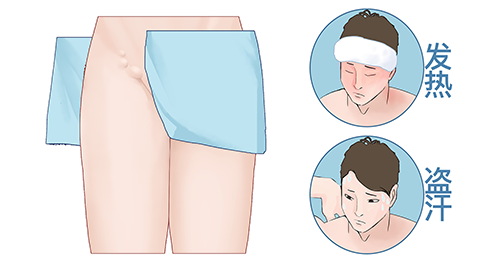What are the early signs and symptoms of lymphoma?
In general, common early signs of lymphoma include painless swelling of lymph nodes, fever of unknown origin, physical fatigue, night sweats, and weight loss. If any abnormalities occur, timely medical consultation is recommended. Detailed explanations are as follows:

1. Painless swelling of lymph nodes: Swelling appears in lymph nodes in areas such as the neck, armpits, or groin. When touched, the swelling feels firm, is movable, and causes no obvious pain. The swelling lasts for a prolonged period and does not resolve on its own, making it one of the common early signs.
2. Fever of unknown origin: Fever without clear infection triggers occurs, with body temperature often around 38°C. The fever may be persistent or intermittent and does not respond well to regular fever-reducing medications. It may last for several weeks or even longer.
3. Physical fatigue: Feeling tired easily during daily activities. Even after sufficient rest, physical strength is difficult to restore, with decreased stamina and a noticeable sense of fatigue occurring even after mild exertion, thereby affecting the normal rhythm of daily life.
4. Night sweats: Excessive sweating during sleep, resulting in soaked clothing or bedding upon waking. This is not caused by high environmental temperature or excessive bedding, and the symptom of night sweats recurs frequently.
5. Weight loss: Without significant changes in diet or lifestyle, weight drops noticeably within a short period. Over the course of several months, weight loss exceeds 10% of original body weight, leading to progressive physical emaciation.
When the above-mentioned early signs appear, timely medical examinations should be conducted at a hospital to determine the cause. Maintaining a regular lifestyle, avoiding excessive fatigue, and enhancing physical resistance in daily life can help in the early detection and management of health issues.







